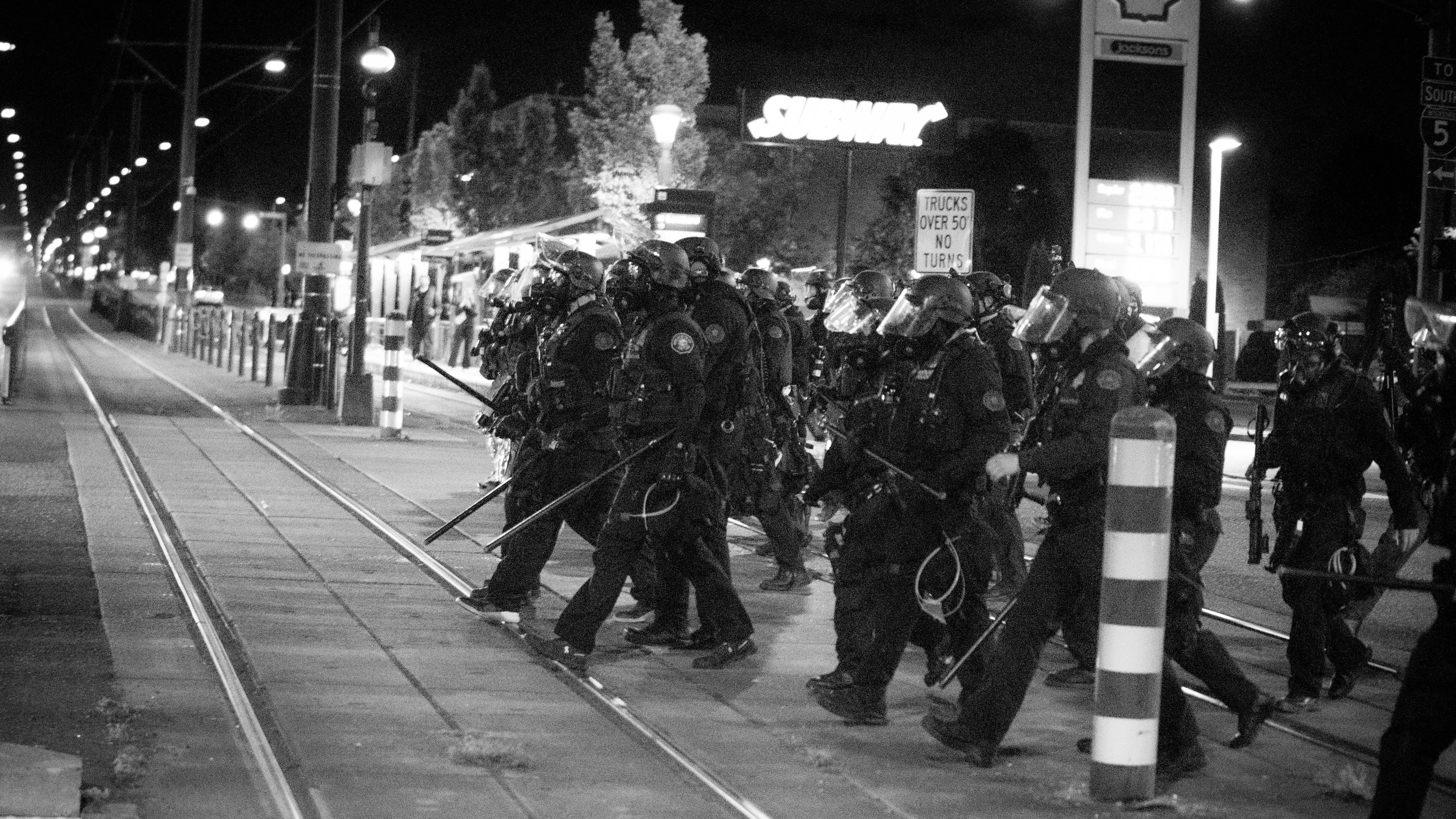A Multnomah County circuit judge ruled Nov. 10 that the city of Portland must turn over the entire list of internal personnel numbers that correspond to the identities of Portland police officers.
Earlier this year, Portland Police Bureau command staff authorized officers to cover the name tags on their uniforms and instead place numbered pieces of tape on their uniforms and helmets as a means of identification. The bureau said that officers on the bureau’s Rapid Response Team, who worked at the protests that were a daily event last year, feared activists would use their names to publicly release personal information about them, including their home addresses.
Alan Kessler, a public interest lawyer and political activist, filed a public records request in June 2020 for a document that would allow observers to match the numbers on officers’ uniforms to their names.
Kessler said he wanted members of the public to be able to identify officers whom they thought might be using excessive force on protesters. Without the officers’ names, filing complaints about officers’ actions would be a waste of time.
The city of Portland rejected his request, and the Multnomah County district attorney upheld that denial on appeal.
Kessler then sued the city in Multnomah County Circuit Court, appealing the DA’s denial.
Judge Pro Tem Terence Thatcher took a different view of the issue. In his lawsuit, Kessler included a photo of an officer wearing a two-digit number over his name tag. In the city’s rejection of Kessler’s records request, it cited a six- or seven-digit number called a PHR number that the city assigns to all employees and which is linked to personal information such as salary, home address and Social Security number.
Thatcher noticed there were two sets of numbers that officers could put on their uniforms. In a ruling last month, he chastised the City Attorney’s Office for acting in bad faith by not informing Kessler of that second list. He ordered the city to turn over a list of the two-digit numbers assigned to all members of the Rapid Response Team.
Related: A Judge Blasts the City’s Justification for Hiding the Identities of Portland Riot Cops.
Thatcher’s harsh assessment of the city’s response to Kessler fueled critics of the city’s interpretation of Oregon’s public records law. Those critics then opposed Gov. Kate Brown’s appointment of a senior city attorney to the Public Records Advisory Council, arguing the city is frequently opposed to the government transparency that panel exists to promote. Brown’s nominee, senior deputy city attorney Jenifer Johnston, withdrew her candidacy on Nov. 16.
After his initial ruling, Thatcher reviewed Kessler’s original request for the six-digit PHR numbers. He didn’t accept the city’s argument on that front either—that revealing those numbers would compromise officers’ safety.
Thatcher’s take: The personal information in each employee’s file is protected by passwords and other computer security measures, so revealing it would not allow private information to be made public.
“It is hard to see how release of numbers used mainly in a secure computer system inaccessible to the public could constitute an unreasonable invasion of personal privacy,” the judge wrote. “Except for their use during the protests, the numbers are essentially meaningless when removed from the system in which they are primarily used.”
He ordered the city to turn over the second list.
“The City must divulge the documents sought by Mr. Kessler showing officer names and associated PHR numbers,” Thatcher wrote.
The ruling pleased Kessler, who underlined the significance of his quest: “Portland had a secret police force for the summer of 2020,” he says.
City Attorney Robert Taylor declined to comment, saying that his office is assessing the judge’s ruling.

